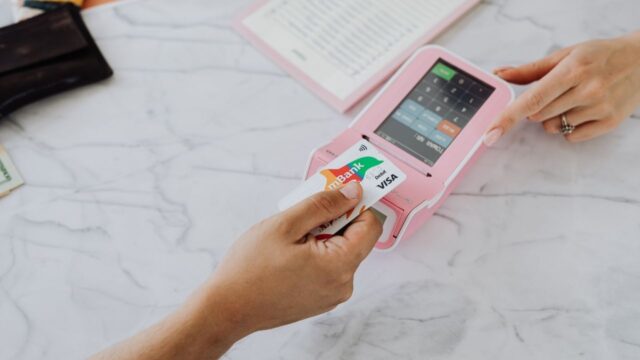
In today’s digital age, financial transactions have become more streamlined and convenient, thanks to the advancements in technology. One such development is the Visa Provisioning Service, a term that might appear on your bank statement. If you’ve ever come across this term and wondered what it means, you’re in the right place. In this blog post, we’ll delve into the details of the Visa Provisioning Service, its significance, and how it impacts your financial transactions.
Understanding the Visa Provisioning Service
The Visa Provisioning Service (VPS) is a pivotal component of the broader digital payment landscape. It facilitates the secure and seamless enrollment of payment credentials – such as credit or debit card information – into digital wallet applications. These applications include mobile wallets like Apple Pay, Google Pay, and Samsung Pay, which allow users to make contactless payments using their smartphones, tablets, or other compatible devices.
The primary objective of the Visa Provisioning Service is to simplify the process of adding payment cards to digital wallets while maintaining the highest standards of security. By acting as an intermediary between the card issuer (your bank) and the wallet provider (e.g., Apple Pay), VPS ensures that your payment information is securely transmitted and stored, thereby reducing the risk of unauthorized access.
How Does the Visa Provisioning Service Work?
When a user decides to add their credit or debit card to a digital wallet application, the Visa Provisioning Service comes into play. Here’s a step-by-step breakdown of how the process typically works:
- Initiation: The user initiates the card enrollment process within the digital wallet app by selecting the option to add a new card.
- Card Information Entry: The user then enters their card details, including the card number, expiration date, and security code, just like they would when making an online purchase.
- Enrollment Request: The digital wallet app sends an enrollment request, along with the entered card details, to the Visa Provisioning Service.
- Tokenization: Upon receiving the enrollment request, the Visa Provisioning Service generates a unique digital identifier called a token. This token serves as a surrogate for the actual card number and is used for transactions.
- Secure Transmission: The token, along with minimal card information, is securely transmitted back to the digital wallet app. The actual card details are never stored on the device or the digital wallet provider’s servers, enhancing security.
- Confirmation: The user’s card is successfully added to the digital wallet, and they receive a confirmation message.
Benefits of the Visa Provisioning Service
- Enhanced Security: One of the most significant benefits of the Visa Provisioning Service is its focus on security. By replacing sensitive card information with tokens, the risk of data breaches and card fraud is significantly reduced.
- Convenience: The service streamlines the process of adding payment cards to digital wallets. Users no longer need to manually enter card details for every transaction, making the checkout process faster and more convenient.
- Versatility: The Visa Provisioning Service isn’t limited to a single digital wallet provider. It can be integrated into various wallet applications, giving users the flexibility to choose the platform that suits them best.
- Global Acceptance: Since Visa is a globally recognized payment network, the Visa Provisioning Service extends its benefits to users across different countries and regions, promoting wider adoption of digital payments.
- Reduced Declines: Tokens generated by the Visa Provisioning Service have a higher likelihood of being accepted during transactions. This is because they are designed to work even in scenarios where the physical card might be declined due to factors like expiration or other issues.
FAQs About the Visa Provisioning Service
1. Is the Visa Provisioning Service the Same as Visa Checkout? No, they are different services. Visa Provisioning Service focuses on securely adding payment cards to digital wallet apps, while Visa Checkout is a separate service that allows for quick and easy online payments using a username and password.
2. Are Tokens Reusable Across Different Devices? Yes, tokens generated by the Visa Provisioning Service are reusable across different devices and wallet applications. This allows for a consistent and convenient payment experience.
3. Can Tokens Be Decoded to Obtain Card Information? No, tokens are designed to be irreversible. They cannot be decoded to retrieve the original card information, making them a secure method of transaction.
Conclusion
In conclusion, the Visa Provisioning Service plays a pivotal role in revolutionizing the way we make digital payments. By ensuring the secure enrollment of payment cards into digital wallet applications, it enhances convenience and security for users. The technology behind this service, including tokenization, is a testament to the ongoing efforts to make financial transactions safer and more efficient. So, the next time you come across the term “Visa Provisioning Service” on your bank statement, you can appreciate its role in shaping the modern payment landscape.


































